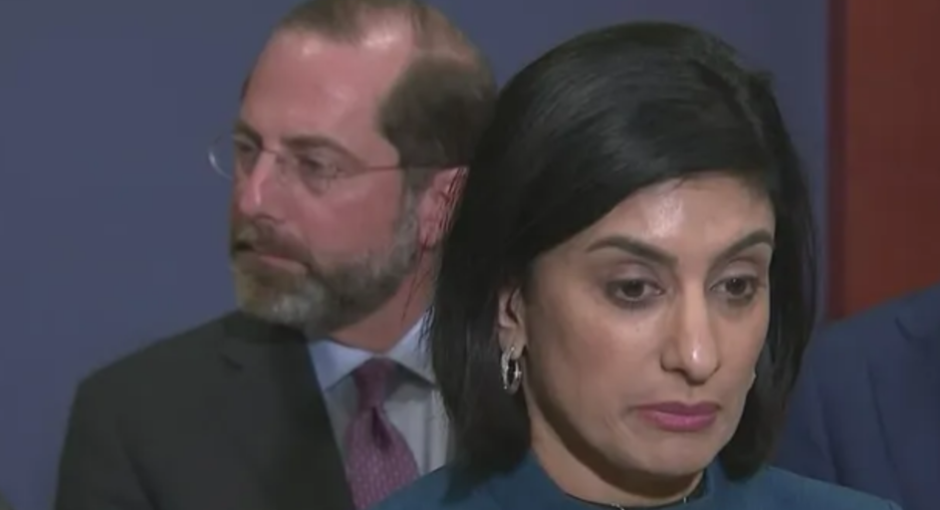Outgoing U.S. Health and Human Services (HHS) Secretary Alex Azar and Centers for Medicare & Medicaid Services (CMS) Administrator Seema Verma both referred to 340B—obliquely in Azar’s case, directly in Verma’s—in recent farewell remarks.
In an interview with Modern Healthcare published Jan. 14, Verma cited CMS’s nearly 30 percent cut in Medicare Part B drug reimbursement for 340B hospitals as one of the most significant changes to Medicare during her tenure. She also described it as blow against monopoly power. The Trump administration never couched the policy in those terms before.
“A few things that we did around monopolies, I think, are very important,” she said. “The changes that we made to 340B—decreasing the reimbursement that 340B providers were getting under the Medicare program because they were getting discounts from the government and yet they were being reimbursed for the drugs at a very high rate. That put them in a position where they can buy out other physician practices. (That rule) didn’t save any money for the federal government, it went right back into the program, but it was about addressing monopolies.”
Azar, in his Jan. 12 letter to President Trump resigning effective noon, Jan. 20, listed requiring “that prescription drug discounts be passed on to patients at the pharmacy counter” was one of many “successful efforts HHS has undertaken” during his time as secretary.
Azar appeared to be referring to Trump’s July executive order and HHS’s subsequent December final rule requiring community health centers to pass their 340B program savings on insulin and epinephrine autoinjectors to low-income, uninsured, and underinsured patients. The incoming Biden administration has said that, within hours of the inauguration, the new administration will issue a memo halting Trump administration regulations that have not taken effect by Jan. 20. The 340B insulin rule is one such regulation.


